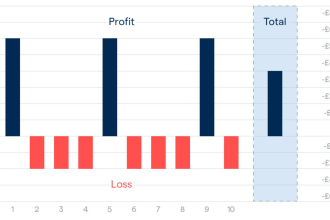Running a business is certainly not for the faint of heart, as becoming an entrepreneur can be incredibly risky, which is reflected in the large number of small businesses that fail before they even have time to start running. A successful business owner has to be able to mitigate the risks involved in running their business while also putting the products and services they offer to the public.
If you are considering starting your own business but are worried about the risks that come with doing so, you have come to the right place. Below is a comprehensive list of some of the most common reasons that small businesses end up failing.
Issues With Finances
One of the most common reasons that small businesses cannot fully get off the ground is because they lack funding or working capital. There are many business owners out there who do not fully understand exactly how much money is required to pay for their business. This includes the likes of payroll, overhead expenses, rent, and utilities.
There are many ways that you can save money as a business; for instance, you should consider utilizing the services of a third-party logistics organization. If you are worried about renting large warehouse space or paying for staff to take care of returns, a third-party logistics company can take these issues from you. For more information, visit https://redstagfulfillment.com/3pl-definition-process-resources/.
Poor Management
It is also very common for businesses to fail due to the fact those managing them are inexperienced or have not properly done market research. In some instances, business owners may only be of a senior level, and for a business to thrive in some competitive industries, they will need to be much more experienced in the day-to-day operations than this.
Ensure when you are starting to run your business that you have done market research and therefore know exactly what steps need to be taken in order to ensure its success.
A Poor Business Plan
A good business plan is one of the most important things that organizations need in order to be able to genuinely thrive. Without these, a business is destined to fail due to the fact it does not have any form of direction. At a minimum, a solid business plan should include the following:
- A clear description of the business
- Current and future employee and management needs
- An understanding as to what the opportunities and threats facing the business are
- A description of capital needs, including projected cash flow and various other budgets
- Marketing initiatives
- Competitor analysis
Conclusion
There are many reasons why small businesses fail, but some of the most common are financial issues, poor management, and an inability to put together a comprehensive and solid business plan. Before you start fully running your business, ensure you have taken the time to consider your budget, engage in market research, and have a genuine plan as to how your business should be run to ensure its success.














